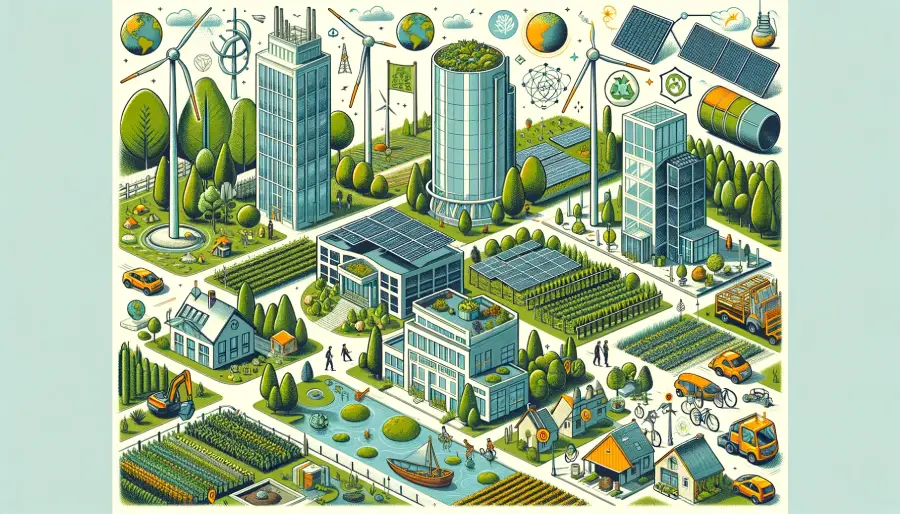Sustainability in economics focuses on balancing economic growth with environmental protection and social well-being. It aims to meet the needs of the present without compromising the ability of future generations to meet their own needs. This article explores the principles of sustainable economics, key concepts, and practical applications for achieving a sustainable economy.
Principles of Sustainable Economics
- Intergenerational Equity: Ensuring that economic activities do not deplete resources or harm the environment, preserving them for future generations.
- Resource Efficiency: Using resources more efficiently to reduce waste and minimize environmental impact.
- Social Inclusiveness: Promoting social equity and ensuring that economic benefits are distributed fairly across society.
- Economic Resilience: Building resilient economic systems that can withstand and adapt to environmental and social challenges.
Key Concepts in Sustainable Economics
- Circular Economy: An economic model that focuses on designing out waste and pollution, keeping products and materials in use, and regenerating natural systems. It contrasts with the traditional linear economy of "take, make, dispose."
- Green Economy: An economic system that aims to reduce environmental risks and ecological scarcities, promoting sustainable development without degrading the environment.
- Natural Capital: The world’s stocks of natural assets, including geology, soil, air, water, and all living things. Valuing natural capital is essential for sustainable economic planning.
- Triple Bottom Line: A framework for businesses and organizations that includes social, environmental, and financial performance metrics. It emphasizes that companies should focus on "people, planet, and profit."
Practical Applications
- Renewable Energy: Investing in renewable energy sources like solar, wind, and hydroelectric power to reduce reliance on fossil fuels and lower greenhouse gas emissions.
- Sustainable Agriculture: Implementing farming practices that protect the environment, public health, human communities, and animal welfare. This includes organic farming, agroforestry, and permaculture.
- Sustainable Transportation: Promoting public transportation, cycling, walking, and electric vehicles to reduce carbon emissions and traffic congestion.
- Green Building: Designing and constructing buildings that are energy-efficient, use sustainable materials, and create healthy indoor environments. LEED certification is one example of a green building standard.
- Corporate Social Responsibility (CSR): Encouraging businesses to operate in ways that enhance society and the environment, beyond their financial interests.
Challenges and Solutions
- Policy and Regulation: Implementing policies that incentivize sustainable practices, such as carbon pricing, subsidies for renewable energy, and regulations on emissions and waste.
- Consumer Behavior: Educating and encouraging consumers to make sustainable choices, such as buying eco-friendly products and reducing waste.
- Technological Innovation: Developing new technologies that reduce environmental impact and increase resource efficiency.
- Economic Incentives: Providing financial incentives for businesses and individuals to adopt sustainable practices, such as tax credits for renewable energy investments and grants for sustainable projects.
Conclusion
Sustainability in economics is about creating a balance between economic growth, environmental stewardship, and social well-being. By integrating sustainable practices into economic policies, business strategies, and consumer behaviors, we can build a resilient economy that benefits both current and future generations. Embracing sustainable economics requires collective effort and commitment from governments, businesses, and individuals to ensure a thriving planet and society.
This article provides an overview of sustainability in economics, highlighting the importance of balancing economic growth with environmental and social considerations, and offering practical solutions for achieving sustainability.

